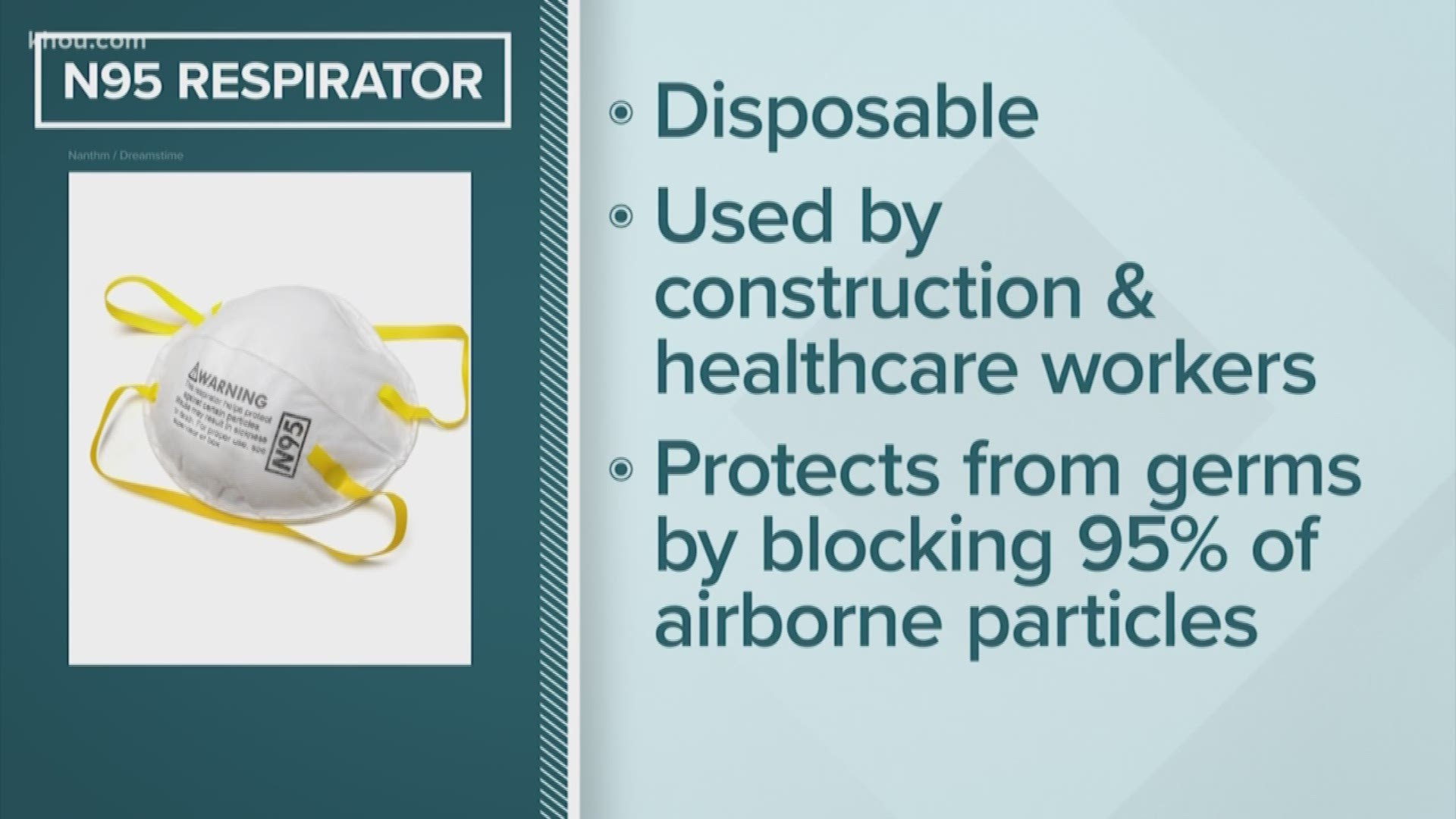HOUSTON — Congressmen Gene Wu and Al Green will be handing out free surgical masks during two separate drive-thru events this weekend in Houston.
On Saturday, Green plans to issue 10,000 procedural masks to local healthcare workers and first responders. He and the Southern News Group have set up a drive-thru at 11122 Bellaire Blvd. It begins at 1 p.m.
On Sunday, Wu will be handing out surgical masks at Sharpstown Park, 6855 Harbor Town Dr. The event runs from 9 a.m - 11 a.m.
These masks are for medical workers, seniors and individuals with compromised immune systems. There’s a limit of two masks per person.
Wu is putting on the event through support from local organizations and other community leaders.
The coronavirus pandemic has led to a shortage of N95 and surgical masks, putting medical professionals and those with vulnerable immune systems at risks.
Although new U.S. federal guidelines recommend wearing a face covering when out in public, it's important medical-grade masks are reserved for medical workers and those at risk for serious health complications.
It's suggested all others use cloth masks, bandannas, scarves and other makeshift coverings with outside their homes.
Coronavirus symptoms
The symptoms of coronavirus can be similar to the flu or a bad cold. Symptoms include a fever, cough and shortness of breath, according to the Centers for Disease Control. Some patients also have nausea, body aches, headaches and stomach issues. Losing your sense of taste and/or smell can also be an early warning sign.
Most healthy people will have mild symptoms. A study of more than 72,000 patients by the Centers for Disease Control in China showed 80 percent of the cases there were mild.
But infections can cause pneumonia, severe acute respiratory syndrome, kidney failure and even death, according to the World Health Organization. Older people with underlying health conditions are most at risk for becoming seriously ill. However, U.S. experts are seeing a significant number of younger people being hospitalized, including some in ICU.
The CDC believes symptoms may appear anywhere from two to 14 days after being exposed.
Human coronaviruses are usually spread through...
- The air by coughing or sneezing
- Close personal contact, such as touching or shaking hands
- Touching an object or surface with the virus on it, then touching your mouth, nose or eyes before washing your hands.
Help stop the spread of coronavirus
- Stay home when you are sick.
- Eat and sleep separately from your family members
- Use different utensils and dishes
- Cover your cough or sneeze with your arm, not your hand.
- If you use a tissue, throw it in the trash.
- Follow social distancing
Lower your risk
- Wash your hands often with soap and water for at least 20 seconds. If soap and water are not available, use an alcohol-based hand sanitizer.
- Avoid touching your eyes, nose, and mouth with unwashed hands.
- Avoid close contact with people who are sick.
- Clean and disinfect frequently touched objects and surfaces.
- If you are 60 or over and have an underlying health condition such as cardiovascular disease, diabetes or respiratory illnesses like asthma or COPD, the World Health Organization advises you to try to avoid crowds or places where you might interact with people who are sick.
Get complete coverage of the coronavirus by texting 'FACTS' to 713-526-1111.
OTHER CORONAVIRUS STORIES ON KHOU.COM
- Map: Keeping track of Houston-area coronavirus cases
- Justin Verlander donating MLB paychecks to organizations helping those affected by COVID-19 crisis
- Judge Hidalgo amends Stay Home order to allow small religious gatherings that follow CDC guidelines
- Simple ways to help others during the coronavirus pandemic
- A mounting casualty of coronavirus crisis: Health care jobs

